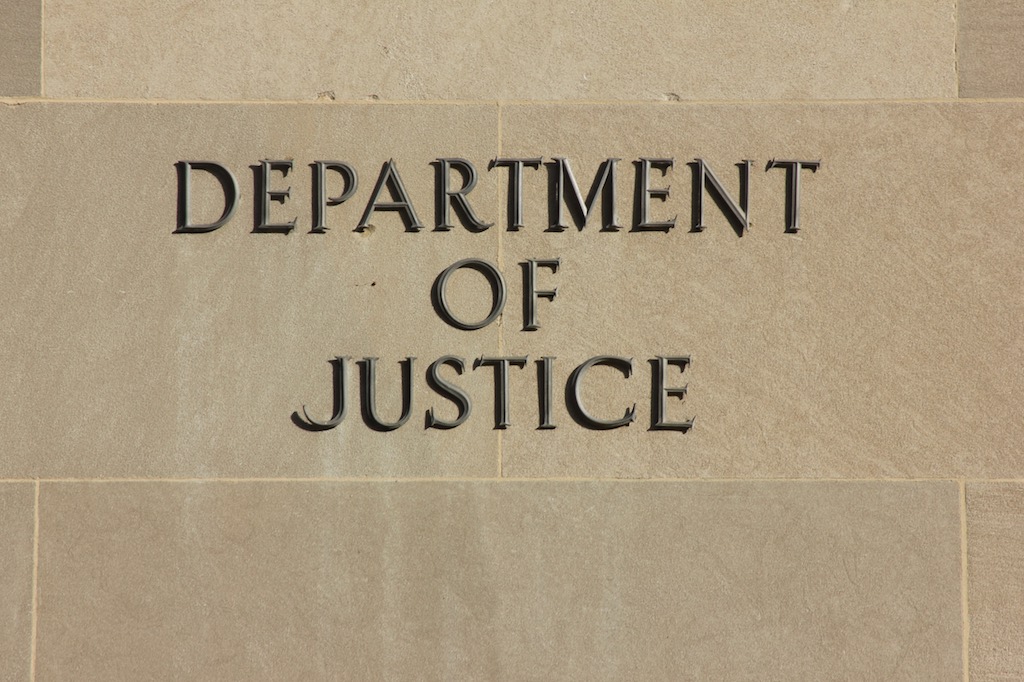What Does the Justice Department Think About Birthright Citizenship?
Inquiring minds want to know.

Published by The Lawfare Institute
in Cooperation With

President Donald Trump revealed on Tuesday, Oct. 30, that he is considering issuing an executive order that would purport to reverse the guarantee of birthright citizenship long associated with the 14th Amendment’s citizenship clause so as to exclude any children of undocumented immigrants born in the United States. The proposal is not an entirely new one; both members of Congress and outside advocates have urged similar measures in the past, usually through legislation. With only a handful of exceptions, however, legal experts—including several associated with the political right—have responded to these efforts with immense skepticism and maintained the position that the traditional interpretation of the 14th Amendment—that anyone born in the United States automatically becomes a citizen—is the correct one and that it can be reversed only through a constitutional amendment.
As George Conway and Neal Katyal wrote in a Washington Post op-ed, “Sometimes the Constitution’s text is plain as day and bars what politicians seek to do. That’s the case with President Trump’s proposal to end 'birthright citizenship' through an executive order. Such a move would be unconstitutional and would certainly be challenged. And the challengers would undoubtedly win.”
Skeptics of the legality of President Trump’s plan, at least traditionally, have included the Department of Justice. In 1995, Walter Dellinger, then assistant attorney general for the Office of Legal Counsel, testified before Congress as to whether birthright citizenship could be revoked or changed by legislation. He stated unequivocally that any such effort would be unconstitutional, testifying in part:
Throughout this country’s history, the fundamental legal principle governing citizenship has been that birth within the territorial limits of the United States confers United States citizenship. The Constitution itself rests on this principle of the common law. As Justice Noah Swayne wrote in one of the first judicial decisions interpreting the Civil Rights Act of 1866, the word “Citizens ‘under our constitution and laws means free inhabitants bom within the United States or naturalized under the laws of Congress.’ We find no warrant for the opinion that this great principle of the common law has ever been changed in the United States.” When Justice Swayne wrote these words, the nation was only beginning to recover from a great Civil War sparked in no small part by the Supreme Court’s tragically misguided decision in the Dred Scott case. That decision sought to modify the founders’ rule of citizenship by denying American citizenship to a class of persons bom within the United States. In response to Dred Scott and to the Civil War, Congress enacted the 1866 Act, and Congress and the States adopted the Fourteenth Amendment in order to place the right to citizenship based on birth within the jurisdiction of the United States beyond question. Any restriction on that right contradicts both the Fourteenth Amendment and the underlying principle that the amendment safeguards.
Dellinger’s testimony was later included in Volume 19 of the “Opinions of the Office of Legal Counsel,” marking it as the sort of formal OLC legal opinion that is generally viewed as binding on the executive branch until superseded or withdrawn. When asked whether he believed that his 1995 testimony still reflected the Justice Department’s view following the president’s remarks, Dellinger indicated that he did not know but confirmed that, to his knowledge, it has “never been publicly called into question.”
To find out whether the Trump administration has called the Justice Department’s view into question, we turned to a familiar friend: the Freedom of Information Act. On Tuesday, we filed several FOIA requests with the Department of Justice. Together, they ask both OLC and the Office of the Attorney General for “[a]ny legal opinion or other document . . . that amends, departs from, disagrees with, distinguishes from, invalidates, repudiates, or supersedes” the views put forward in Dellinger’s testimony, as well as any records reflecting conversations with the White House, Congress or other federal agencies regarding birthright citizenship. Our hope is that, even if the Justice Department does not share the documents themselves, its responses will shed light on whether they exist. This in turn should give insight into whether President Trump and his allies have consulted the government’s own legal experts on whether such a major legal change is advisable or even feasible.
As always, we will post the results when we receive them. Until then, below are copies of our FOIA requests:




.jpeg?sfvrsn=96471529_5)

